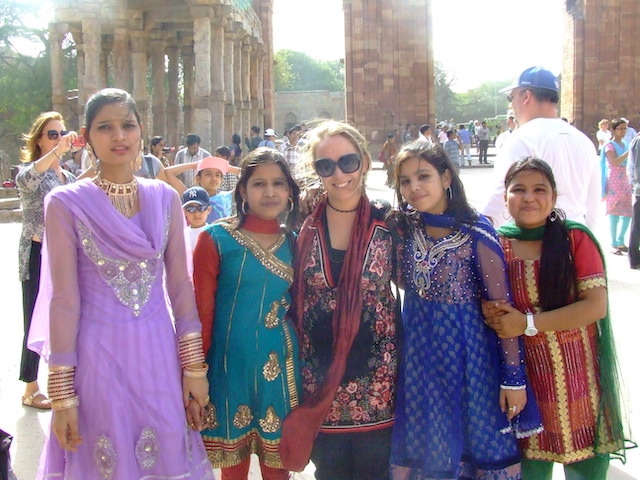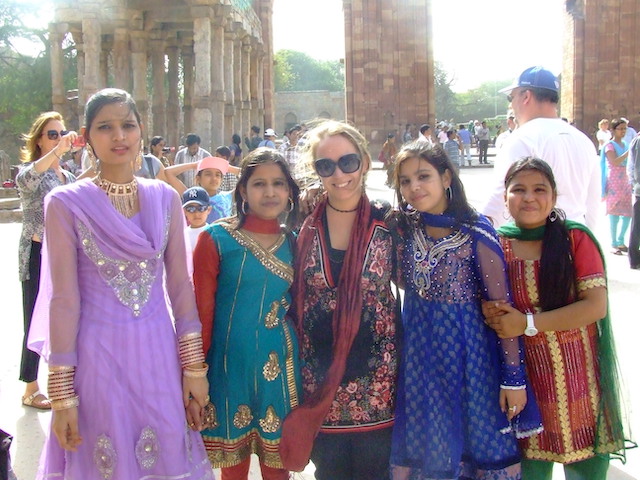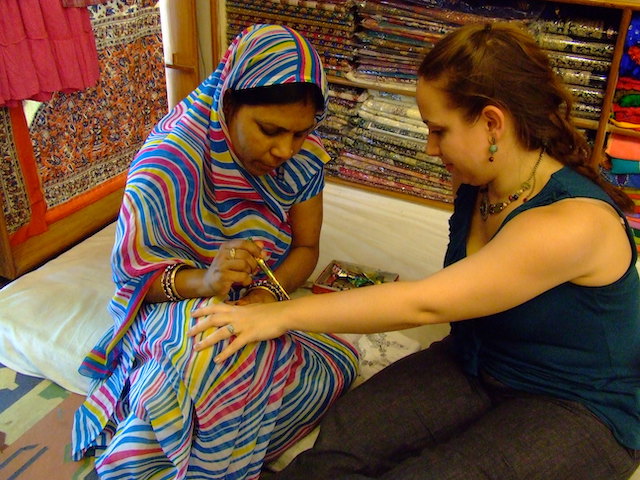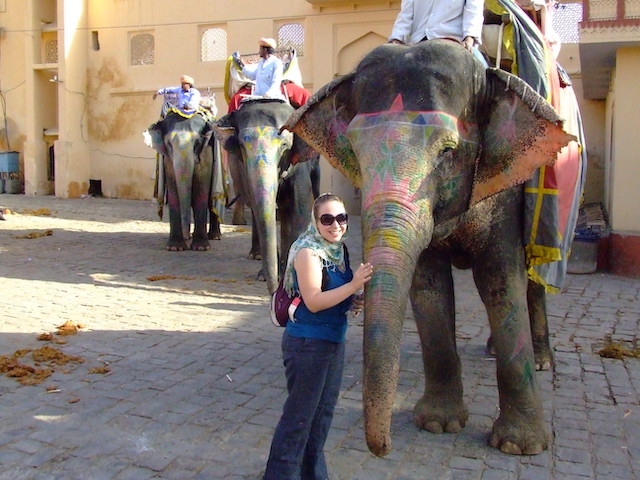How To Talk About Your Travels Without Annoying Your Friends

Fellow travelers, you know the feeling well. Whether our trip lasted two weeks or two years, when we return home, all we want to do is talk about it. The crazy travel stories (“This one night, we found a goat on the street in Prague…”), the awe-inspiring sights, the new foods we can’t live without.
And for a little while, our friends and families are more than happy to hear about it. The first question they often ask is: “So… how was it?” But somewhere around the 11th time we moan about how bland the local coffee tastes compared to what we had in Brazil, our nearest and dearest may start to get a little bit annoyed.
Even if they keep the travel tales and references to a minimum, some travelers worry that no matter what they say or how they frame their experiences, they will come off sounding privileged, or as if they are bragging. I once had a student preparing to return to her home country after a year spent studying in the US, and this was a real concern for her. “I had an amazing year,” she told me, “but it wasn’t all positive.
If I tell my friends I was miserable sometimes, they’ll just say, ‘But you were in ___! How could you possibly complain?’” Not to mention the challenge of how to condense a year’s (or even a few weeks’) worth of experiences into a casual conversation, often with listeners who’ve never been to the places we’re talking about!
Somewhere around the 11th time we moan about how bland the local coffee tastes compared to what we had in Brazil, our nearest and dearest may start to get a little bit annoyed.
I always recommend that my students take some time on the plane home to think about how they are going to frame their narratives. Not only does it prepare them to answer their friends’ and families’ questions, but it also helps them to process their own experiences. This is the advice I give them.
“How was it?” is an incredibly broad question and is, without a doubt, the first (and most frequent) one you will hear. We can do a lot better than the lame-o response, “It was great!”
Think of framing your replies in one of the following ways. (I’ll use my 2012 trip to India as an example.)

How To Talk About Your Travels Without Annoying Your Friends
1. The 3 (or 4) Point Brief Recap
India was incredible, and there were four themes that really stood out to me: contrast, religion, color, and transportation. And then I would explain a little bit about each of them: a tidbit, a story, and/or a photo.
2. Best Day/Worst Day
Sharing the highs and lows of a trip shows both appreciation and humility. For India I talked about the day I saw a man hit a woman holding a child on the street as my low point, and my trip to the slum Dharavi with my students as my high point. This also helps to de-romanticize travel a bit.

3. Something New Learned/Tried
A food, an activity, a new skill – whatever it is, it shows that you are adventurous and willing to learn! I took a cooking class in India, and often recounted what I had learned about spices. And then I often offered to cook my friend something from my trip the next time she came over
How To Talk About Your Travels Without Annoying Your Friends.
4. Surprisingly Different/Surprisingly Similar and Exactly What You Expected
This one is great because the listener likely shares the same frames of reference as you do. They can see where you’re coming from, and can be surprised right along with you! At my cooking class in India, I was talking with our teacher about the differences between living in New York City and in Delhi. She loved New York City, and said we were so lucky to always know we would have access to public trashcans and restrooms. I agreed, but said that there are some frustrating things about living in NYC.
For example, I told her how we did not have laundry facilities in our apartment or building, and so we can only do our laundry every two weeks. “How terrible!” she said. “That means you have to have at least two weeks worth of outfits to wear!” With my closet full to bursting, I could probably wear a different outfit every day for two months! I had never thought of it that way.

Whichever frame you choose to begin your story, always:
A. Tell a funny story, preferably at your own expense.
This again shows humility, invites the listener to laugh with you, and shows that you are not bragging about your fabulously glamorous experience.
B. Be the best ambassador for international experiences you can be!
Thoughtful: Share meaningful stories, not shallow observations.
Humble: I keep coming back to this but I think it’s so important. Seeing the world is a privilege, and we should always be conscious of this when sharing our adventures.
Excited: The child-like wonder and excitement that often comes with travel can be contagious – we might just inspire others to see the world too!
Finally: Be a good listener yourself. Pink Pangea provides a great community for just that, so in conversations (in person and online) remember to be curious about, supportive of, and open to other travelers’ experiences. After all, that’s what traveling is all about!

How To Talk About Your Travels Without Annoying Your Friends top photo credits: by Rachel Romesgurg Rice and unsplash.com. Do you have tips to add to this list? Comment below and tell us how you talk about your travels!









Reading and enjoying again. I find the advice just as fresh today as it was when written. It’s hard to be humble when having the opportunities to travel and explore our world, and I agree how important it is to be so when answering friends’ questions. It’s difficult to achieve that happy medium and I find it appropriate to respond how God has blessed our lives with such experiences.